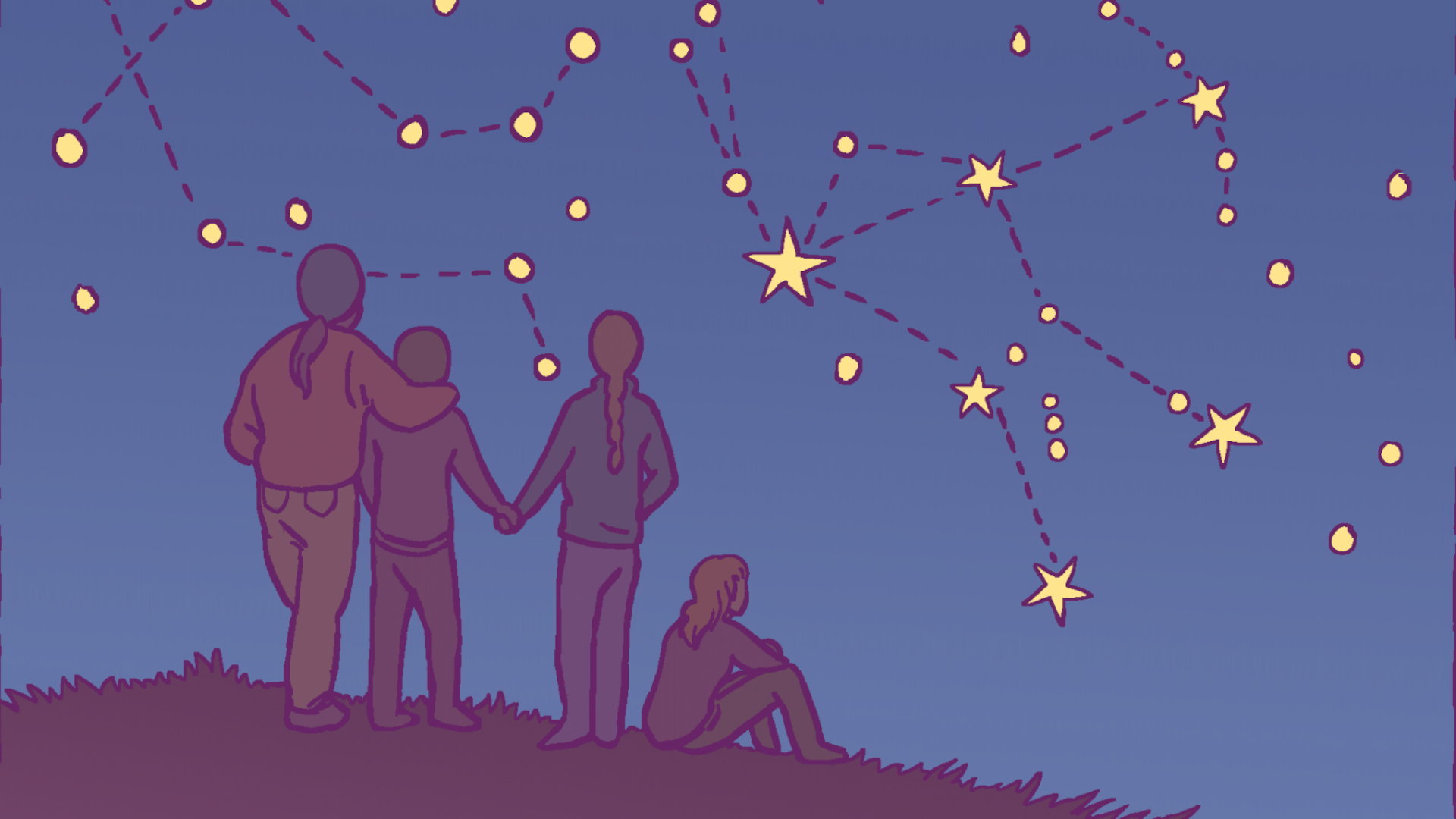Author Behind the Most Banned Book in the U.S. Once Thought ‘Who is Even Gonna Read This?’

If there was one thing I wasn’t expecting at Flame Con 2023, it was comic artist and writer Maia Kobabe’s saying that e feared eir graphic memoir Gender Queer would be “boring.”
“When I sold the book deal, part of me was like, ‘Who wants to read the memoir of a 28-year-old who has done nothing?'” e said.
Kobabe (who uses e/em/eir pronouns) was on a Q&A panel hosted by Flame Con’s panels lead, Sara Munson, where e talked about eir years growing up in a liberal Northern California family, falling back in love with fandom through K-Pop, and how a potential follow up book would “almost entirely” talk about asexuality and aromanticism (don’t hold your breath on that one, Kobabe explained: The cartoonist has a 10-year-gap rule). And yes, Kobabe even opened up about the widespread censorship of Gender Queer and how utterly unexpected it was. (“Who could have predicted this?”)
But boring? It’s hard to believe a graphic memoir about coming out as non-binary, and finding belonging as a trans adult, could ever be considered boring.
‘I have been baffled and surprised’
As Kobabe explained during the panel, the comic creator had modest expectations for Gender Queer, clearly surprised and humbled by the memoir’s praise across the LGBTQ community. “I, when working on the book, had moments where I was like, ‘who is the audience for this?’ Like, ‘who is even gonna read this?'” e told the audience. “Because it felt so specific to my own experience, I was very unsure if anyone other than my family and my IRL friends—my community—would read it.”
Only by actually putting eir life to the page, and examining the struggles e experienced as someone who is trans nonbinary, did Kobabe finally realize that eir life story was a fundamentally important one to tell.
“So much of the struggles of my life have all been deeply internal,” Kobabe said. “I’ve had very little external conflict in my life. I’m a middle-class white person from the liberal Bay Area, I’ve had so much privilege and safety in my life, and space to find myself at this very slow pace. And honestly I worried the book might be boring because of that. Because the lack of external conflict, and there’s so much writing advice saying like, ‘your characters have to face all of these conflicts and things.'”
Of course, internal conflict is still very real conflict. Only by putting eir lived experiences to words did Kobabe finally realize “how to explain the things that I had deeply been struggling with my entire life.”
“And I think I too only saw it as a narrative once I had written it,” e said.
Kobabe, to be clear, didn’t necessarily need the wider world to read or enjoy Gender Queer to consider the book a success. Certainly, e was hopeful that others would come across eir memoir, read it, and “maybe find it useful and meaningful” to “open those conversations” on trans and non-binary life experiences “in their own families.”
“But I didn’t know,” e said. “And I would say the entire time I have been baffled and surprised, usually pleasantly, by its popularity and its reception and how far it has gone outside of places where I have ever been.”
Gender Queer: A Memoir was the most banned book across the 2021 to 2022 school year, and it tied for the most banned book at the start of the 2022 school year, according to PEN America. Kobabe’s memoir was also the most challenged book in schools and libraries, with 151 documented censorship attempts across the country, according to the American Library Association.
It’s impossible to call Kobabe’s work boring. In an era where trans rights are under attack, speaking openly and honestly about trans lived experiences is as transgressive as you can get.
(Feature image: Maia Kobabe)
Have a tip we should know? tips@themarysue.com